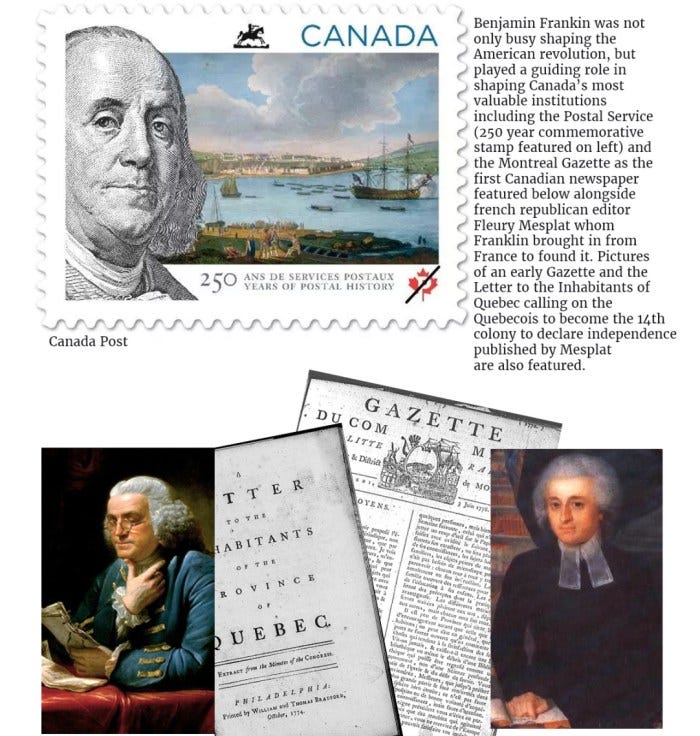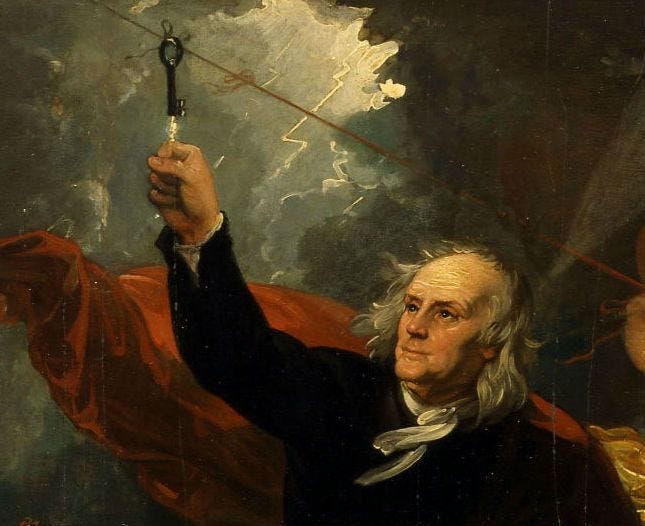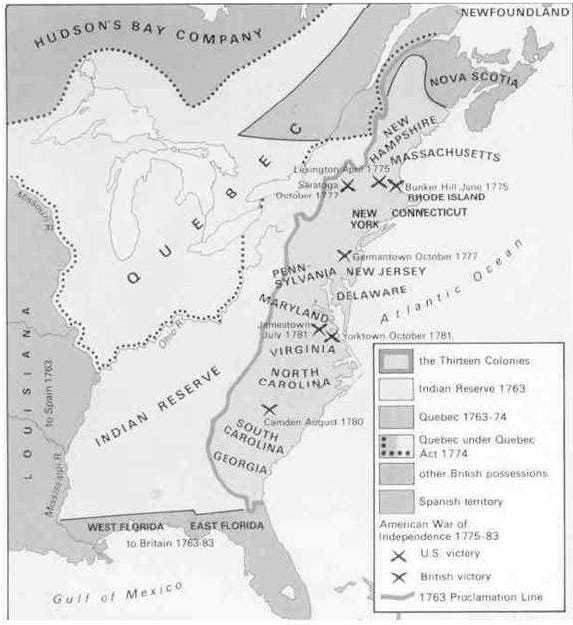It may be a bit of a bitter pill to swallow for some, but as I outlined in my Missed Chance of 1867, and the True Story of the Alaska Purchase, the original founding of Canada on July 1st, 1867 was designed by British Geopoliticians for the explicit purpose of keeping Canada locked into the British Empire as a wedge separating the potential U.S./Russia alliance that had the power of breaking the system of empire forever. During this 1863-1867 period, Canada’s pro-Lincoln statesmen under the influence of Les Rouges in Quebec and Isaac Buchanan in Ontario had lost their grip on power and the nation lost a vital chance of becoming a participant in a new world of win-win cooperation, rail and industrial growth outside of systems of empire.
This failure of 1867 was not the first, but rather the third time in 90 years that Canada missed its chance to break free of the Empire and become a genuine nation state.
I would like to review the first of two pre-1867 “missed chances” which I think has especially important relevance since we have just recently passed the anniversary of the birth of Benjamin Franklin himself and also because the American republic is itself now precariously on the cusp of disintegration. If citizens fail to learn the lessons of passed errors (the failure to accept Ben Franklin’s challenge in the case of Canada) or fail to appreciate the lessons of past victories, then those freedoms we take for granted now will not long endure while those we may not yet have may never in fact arise.
1774 and the Ben Franklin Challenge
Many Canadians (and Americans) find themselves shocked when confronted with the fact that Canada’s first postal service and first newspaper were both created by… Benjamin Franklin!
Established in 1753 in Halifax as part of Franklin’s overhaul in communications infrastructure in the Americas, mail services were extended to Quebec City and Montreal after the French were defeated in the Seven Years’ War in 1763 as France’s colony north of Vermont fell to the British. Franklin had been made Post-Master General in 1753 (the same year his famous kite experiment made him an international sensation).
Montreal’s Gazette was founded by a French republican named Fleury Mesplat recruited by Franklin in order to help counteract the destructive effects the French feudal system had on the cognitive powers of the Quebec colonists whose rampant illiteracy dovetailed their non-existent appetites for representative government or freedom. In this feudal culture, blind obedience to authority (whether political or religious) was seen as preferable to thinking for oneself.
Although Franklin created these cultural milestones and was an active diplomat working to persuade the Quebecois of the importance of becoming a 14th member of the united colonies, his mission failed due to a series of bribes, acts of treason and short sighted thinking by men who should have known better. Ultimately, the Quebecois chose submission to Crown rather than risking their lives for freedom.
Before we say how and why this happened, some additional words on Franklin are necessary.
Getting to know the Real Benjamin Franklin
Despite the widespread mythology that the father of the American Revolution, Dr. Benjamin Franklin was merely a womanizing tinkerer and land speculator, the reality, upon closer inspection, is quite different.
Having become recognized as a world’s leading scientist during the 1750s for his discovery of the nature of electricity, Franklin became revered across Europe as the “Prometheus of America” (having stolen fire from Zeus to share with mankind, Prometheus was always seen as an anti-imperial figure by lovers of freedom since the time of Aeschylus). Franklin polarized the elite of the European nobility and strove to infuse a spirit of creative seeking and self improvement wherever he went by promoting industry, infrastructure and science.
His approach to indiscriminate acts of improvement were highly motivated by his early studies of a 1710 book by his mentor Cotton Mather called “Essays to Do Good” which Franklin described as “an influence on my conduct through life; for I have always set a greater value on the character of a doer of good, than on any other kind of reputation; and if I have been, as you seem to think, a useful citizen, the public owes the advantage of it to that book.”
For many years, Franklin was not in favor of a full revolution, but believed that it were possible to reform the British Empire (which had only recently been hijacked by the Venetian Party faction during the Glorious Revolution of 1688). During Franklin’s lifetime, the republican spirit of Thomas More, Erasmus and Shakespeare was still very much alive and it was this Promethean Christian spirit that he felt could be kindled to transform the Empire from a Satanic Hellfire Club operation into something viable and in harmony with humanity’s well-being[1].
This belief led Franklin to transform Britain itself through his creation of the British Lunar Society while acting representative to Britain in 1857. This group featured such scientists as Matthew Boulton, Josiah Wedgewood and Erasmus Darwin and uniquely drove the advancement of internal improvements (roads, canals, bridges, steam power, sewage etc), industrial growth and living standards in Britain. In the arts, Franklin’s close friend and fellow Pennsylvanian Benjamin West was sent to Italy and Britain where the great republican painter organized the creation of the Royal Academy of the Arts in the heart of the Empire in 1772 and remained its president until his death in 1830.
In the 13 colonies of America, Franklin created the first fire department (1736), public library (1731), and founded the University of Pennsylvania. As a leading printer and later post-master general, Franklin knew that the American population of the 1730s did not yet have the moral or cognitive fortitude to induce a revolutionary positive change for the world and as such he created the influential Poor Richards Almanac which wrapped moral lessons and insights into poetry, science, astronomy and philosophy lessons with every single issue. This popular journal probably did more than anything else as a form of mass cultural education which empowered Americans to eventually think on a level sufficient to understand why concepts like Freedom were worth dying for (taxation without representation was merely one of 27 points enumerated in the Declaration of Independence).
In preparing the foundations for a reform of the world political-economic system, Franklin studied Chinese culture and strove to model western reforms on the best principles of Confucianism and the Chinese constitution.
Franklin applied the best techniques of satirist-republican Jonathan Swift and wrote countless hilarious essays under pen names like Silence Dogood, Martha Careful, Richard Saunders and Anthony Afterwit. He also followed Swift’s lead as he argued against British population control in his Observations Concerning the Increase of Mankind. As early as 1729, Franklin codified a system of banking tied not to the worship of money or markets but rather internal improvements which argued for the creation of colonial scrip (not controlled by private central bankers). These insights would derive from his studies of Colbertist Dirigism and preceded the later work by his protégé Alexander Hamilton who established the American system of Political economy in his 1790-91 reports.
Most importantly, Franklin worked to coordinate an international network of collaborators among the enlightened intelligentsias of Russia, France, Germany, Prussia, Spain, Italy and even India and Morocco! In this way, the scientist/poet/statesman walked in the footsteps of the great Gottfried Leibniz who had attempted a similar grand design when Franklin was still a boy.
Back to Canada…
When he was still of the view that Britain could be reformed, Franklin wrote his famous Canada Pamphlets of 1760 which made the case that even though monetarily speaking it was more profitable for Britain to take France’s possessions in Guadeloupe due to the high price of sugar and rum, it was infinitely preferable to take Canada instead where potential for growth and improvement was boundless. Franklin knew the evil corruption of London and the European imperial powers (which had vast possessions in the Americas), but always believed that a united colonial republican movement could become the spark plug for an international new renaissance movement forecasted by John Winthrop’s City on a Hill vision of 1630.
This was the belief that underlay Franklin’s 1769 message to Lord Kames which has confused so many modern scholars as Franklin says:
“No one can more sincerely rejoice than I do, on the reduction of Canada and this not merely as I am a Briton. I have long been of opinion that the foundations to the future grandeur and stability of the British Empire lie in America; And though like other foundations they are low and little now, they are nevertheless broad and strong enough to support the greatest political structure that human wisdom ever erected.”
When it became clear that the British aristocracy was intent on crushing Franklin’s dreams of emancipation by the early 1770s, Franklin began devoting all of his energy towards a full revolution from the “mother country” and French Canada was always a high prize. Since British abuses of the French population ran rampant, and sympathy for the republican cause was widespread among Quebec subjects (though not the feudal elite), Franklin and others believed that Quebec’s eventual participation would not be a difficult affair.
By 1774, the British Empire pre-empted the inevitable participation by passing the Quebec Act giving an unprecedented array of religious freedoms to Quebec’s population which were always fearful of losing their Catholic traditions. These freedoms came however, at the cost of unquestioned loyalty to the Crown, and to accept never having representative government (only Crown appointees). The Jesuit-run clergy elite were overjoyed to keep their hold on the population, tithes and still enjoy revenue of the human cows on their lands. As an additional insurance, the Church under the control of Bishop Briand ensured that any subject who joined Washington’s rebellion would be excommunicated on the spot and thus burn in hellfire for eternity!
Ordering all parishes to accept the reign of King George, Bishop Briand stated:
“The God of armies…who extends or restricts at his pleasure the boundaries of empires, having by his eternal decrees put us under the domination of his Britannic Majesty, it is our duty, based on natural law, to be interested in all that concerns him. We order you to submit to the king and to all those who share his authority.”
A particularly dangerous part of the Quebec Act was the extension of Quebec’s Crown-controlled lands down into the Ohio River fully encircling the 13 colonies and making them subject to non-linear attacks by Jesuit-run natives. While the native population was highly wronged by all sides at different times during this conflict but the British and Jesuit collaborators used the most refined techniques of manipulation and have to the present day. The caging of the colonies onto the Pacific Coast was a far sighted maneuver to subvert the mandate of the “Continental” Congress whose name implied it’s larger goal.
On October 26, 1774 a Letter to the Inhabitants of Quebec was sent from the Continental Congress extolling the population to join in the declaration of independence and unite with the 13 colonies. While the whole letter should be read in full, it ended with this call:
“We only invite you to consult your own glory and welfare, and not to suffer yourselves to be inveigled or intimidated by infamous ministers so far as to become the instruments of their cruelty and despotism, but to unite with us in one social compact, formed on the generous principles of equal liberty and cemented by such an exchange of beneficial and endearing offices as to render it perpetual. In order to complete this highly desirable union, we submit it to your consideration whether it may not be expedient for you to meet together in your several towns and districts and elect Deputies, who afterwards meeting in a provincial Congress, may chose Delegates to represent your province in the continental Congress to be held at Philadelphia on the tenth day of May, 1775.”
The British and their French collaborators ensured that hardly any of these letters would be permitted into Quebec, and sadly for the hundreds that did arrive, the rate of illiteracy among the feudal population made it nearly impossible for most to read or understand it. Despite this problem, several hundred did risk perpetual hellfire and joined the revolutionary cause under the leadership of Clement Gosselin (later known as Washington’s French-Canadian Spy).
The Last Attempt: Franklin in Canada
The last effort to convince Quebec to join came a year later, as a delegation led by an aging Ben Franklin made their way to Montreal where they stayed for two weeks from April 29- May 6, 1776. The Continental Congress gave Franklin the following instructions:
“Inform them that in our Judgment their Interest and ours are inseparably united. That it is impossible we can be reduced to a servile Submission to Great Britain without their sharing in our Fate; and on the other Hand, if we obtain, as we doubt not we shall, a full Establishment of our Rights, it depends wholly on their Choice, whether they will participate with us in those Blessings, or still remain subject to every Act of Tyranny, which British Ministers shall please to exercise over them. Urge all such Arguments as your Prudence shall suggest to enforce our Opinion concerning the mutual Interests of the two Countries and to convince them of the Impossibility of the War being concluded to the Disadvantage of the Colonies if we wisely and vigorously co-operate with each other.
“To convince them of the Uprightness of our Intentions towards them, you are to declare that it is our Inclination that the People of Canada may set up such a Form of Government, as will be most likely, in their Judgment, to produce their Happiness; and you are in the strongest Terms to assure them, that it is our earnest Desire to adopt them into our Union as a Sister Colony, and to secure the same general System of mild and equal Laws for them and for ourselves, with only such local Differences, as may be agreeable to each Colony respectively.”
A rampant smallpox outbreak among American soldiers in Montreal (via the British spread of germ-infested blankets), mass demoralization and news of an oncoming British counterattack to regain control of Montreal put an end to that effort and Franklin returned to America empty handed.
The rest they say is history.
How the International Revolution was Subverted
While the French feudal elite were soon joined by a new set of United Empire Loyalists who left America after the Revolutionary War to establish English-speaking Canada, some traitors remained behind in the United States where they passed themselves off outwardly as friends of the revolution but always maintained a secret allegiance to the City of London and the system of hereditary powers antagonistic to the Principles of the Constitution and Declaration of Independence.
These traitors fomented the growth of a perverse form of manifest destiny which abolitionists like Franklin, John Jay, Alexander Hamilton, Gouvernor Morris, Robert Morris, etc… fought tirelessly against throughout their lives. These traitorous bigots made every effort to spread slavery, destroy native Americans while subverting the true heritage of the republican cause from within.
One notable early representative of this group killed Alexander Hamilton in 1804 and set up the Bank of Manhattan establishing Wall Street as a City of London tentacle within America itself where this proto-deep state remained in power for the next 250 years.
In France, Ben Franklin’s allies led by Marquis Lafayette and Jean-Sylvain Bailey found their noble republican efforts of 1789-90 sabotaged by a color revolution in the form of the Bloody Jacobin terror coordinated by London’s Foreign Office and which I outlined in a recent paper: The Jacobin Terror (Just Another Color Revolution?).
In Canada, the British Foreign Office instituted a form of government which gave some limited elected positions to the plebians in 1791 but ensured that all actual power remained firmly in the hands of appointees of the Crown. During the post-1791 years, local oligarchies formed under the Family Compact of Upper Canada and the feudal elite of the Church in Lower Canada who collaborated closely in an unholy alliance. Their efforts were always driven by the need to keep the nation “un-American” by ensuring that the lands remain under-developed, the economy remain cash cropping as “hewers of wood and drawers of water”, and the population docile, ignorant and malleable.
In spite this perversion of history, growing poverty and injustices did induce a movement of resistance which began to take the form of republican “patriot movements” under the leadership of William Lyon Mackenzie in Upper Canada and Louis-Joseph Papineau in Lower Canada- both of whom would come to a head in the Rebellions of 1837-38 (aka: the second missed chance).
*The author wrote a larger series of studies under the title “Origins of the Deep State in North America parts 1-3 and an even fuller picture of this story is told in The Untold History of Canada.
[1] Franklin’s deployment as a counter-intelligence spy into the London Hellfire Clubs in the 1730s as part of Cotton Mathers’ battle against the empire is told in Graham Lowry’s How the Nation Was Won (1630-1754)








http://thingumbobesquire.blogspot.com/2021/01/the-truth-will-set-you-free.html
The Truth Will Set You Free
The paucity of accurate and detailed information on the widespread influence of Franklin and detail s of the British hegemony that served to put Canada into servitude are thoroughly missing from most history courses and fully absent from the history texts used in both US and Canadian classes because the publication corporations are thoroughly controlled by the same Empire that fostered the injustices of centuries. It is monographs like that that need to be more widely disseminate and read to dispel the revisionist and false view of history promulgated by those guilty of suppressing the rightful ambitions of the spirit of mankind.